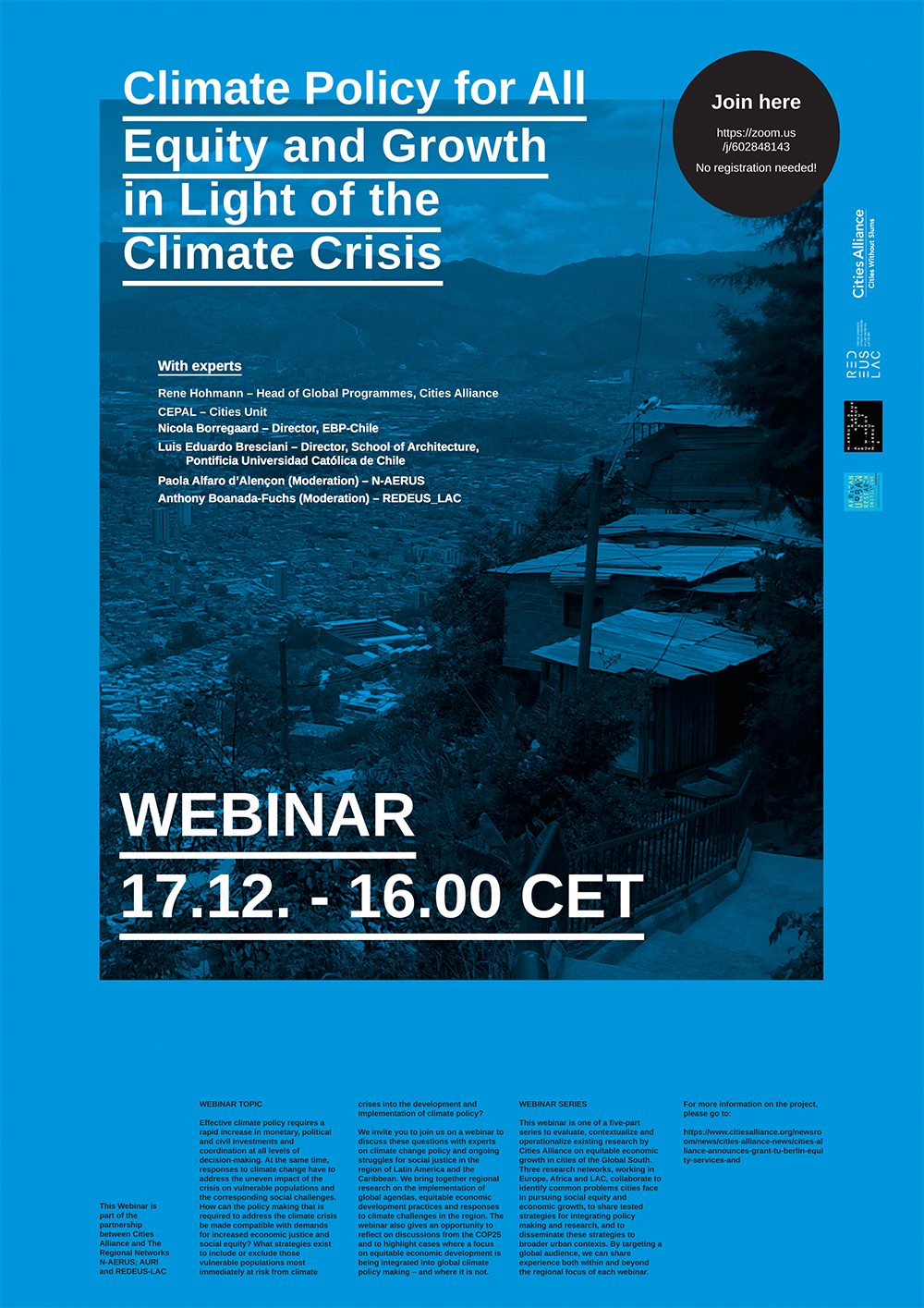Webinar
December 17, 2019; 16:00 CET
Climate Policy for All
Equity and Growth in Light of the Climate Crisis
Effective climate policy requires a rapid increase in monetary, political and civil investments and coordination at all levels of decision-making. At the same time, responses to climate change have to address the uneven impact of the crisis on vulnerable populations and the corresponding social challenges. How can the policy making that is required to address the climate crisis be made compatible with demands for increased economic justice and social equity? What strategies exist to include or exclude those vulnerable populations most immediately at risk from climate crises into the development and implementation of climate policy?
We invite you to join us on a webinar to discuss these questions with experts on climate change policy and ongoing struggles for social justice in the region of Latin America and the Caribbean. We bring together regional researchers and practitioners to discuss their experiences with the implementation of global agendas, equitable economic development practices and responses to climate challenges in the region. After exploring important sectoral approaches to addressing these challenges, we will focus in particular on possibilities for research-policy interfaces moving forward. Finally, the webinar gives an opportunity to reflect on discussions from the COP25 and to highlight cases where a focus on equitable economic development is being integrated into global climate policy making – and where it is not.
The webinar and Q&A was held in English.

To download this flyer click here
- How can the policy making that is required to address the climate crisis be made compatible with demands for increased economic justice and social equity?
- How can and does existing climate policy include or exclude those vulnerable populations most immediately at risk from natural disasters and climate crises and without the necessary means to respond?
- How does the current standard discourse on climate policy integrate the parallel goal of addressing social and economic inequalities in cities?
2.1 The topics that we focus on are split into two categories:
- to discuss the ways in which economic growth, equity and the climate crisis are interrelated in the Latin American and Caribbean context,
- to explore examples of current regional activities (financial, technological, logistical) which represent equity-based approaches, programs, policies and research-policy interfaces in the context of the climate crisis, and
- to reflect on how governance frameworks can be used as possible tools for multi-level climate policy in order to address the different inequalities and challenges facing the region.
Team
Paola Alfaro d'Alecon - N-Aerus, TU Berlin (Moderation)
Anthony Boanada-Fuch - N-AERUS, University St. Gallen (Moderation)
Colin Delargy - TU Berlin (Coordination)
Josefa Zavala - TU Berlin (Coordination)
Deepa Joshi - TU Berlin (Coordination)
Panelists
Rene hohmann - Head of Global Prorames, Cities Alliance CEPAL - Cities Unit
Nicola Borregaard - Director, EBP-Chile
Luis Eduardo Bresciani - Director, School of Architecture, Pontificia Universidad Catolica de Chile
a. Slides
Presentation Renee Hohmann (Cities Alliance)
Presentation Nicola Borregaard (EBP Chile)
Presentation Marina Gosselin (ECLAC)
b. Additional ressources
Here you will find a list of sources and resources on the topic of growth, climate change and Latin America, as well as to further information on projects and collaborations discussed within the webinar.